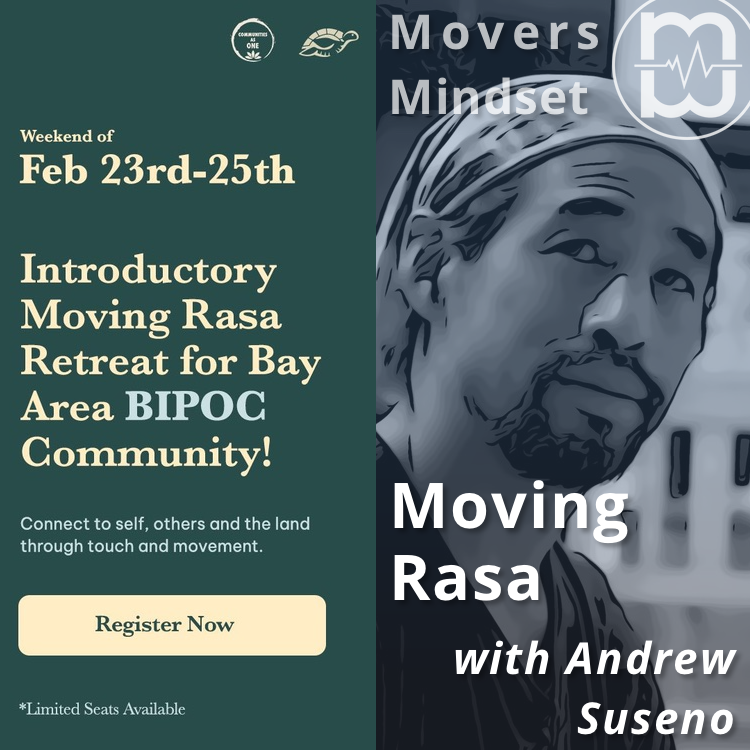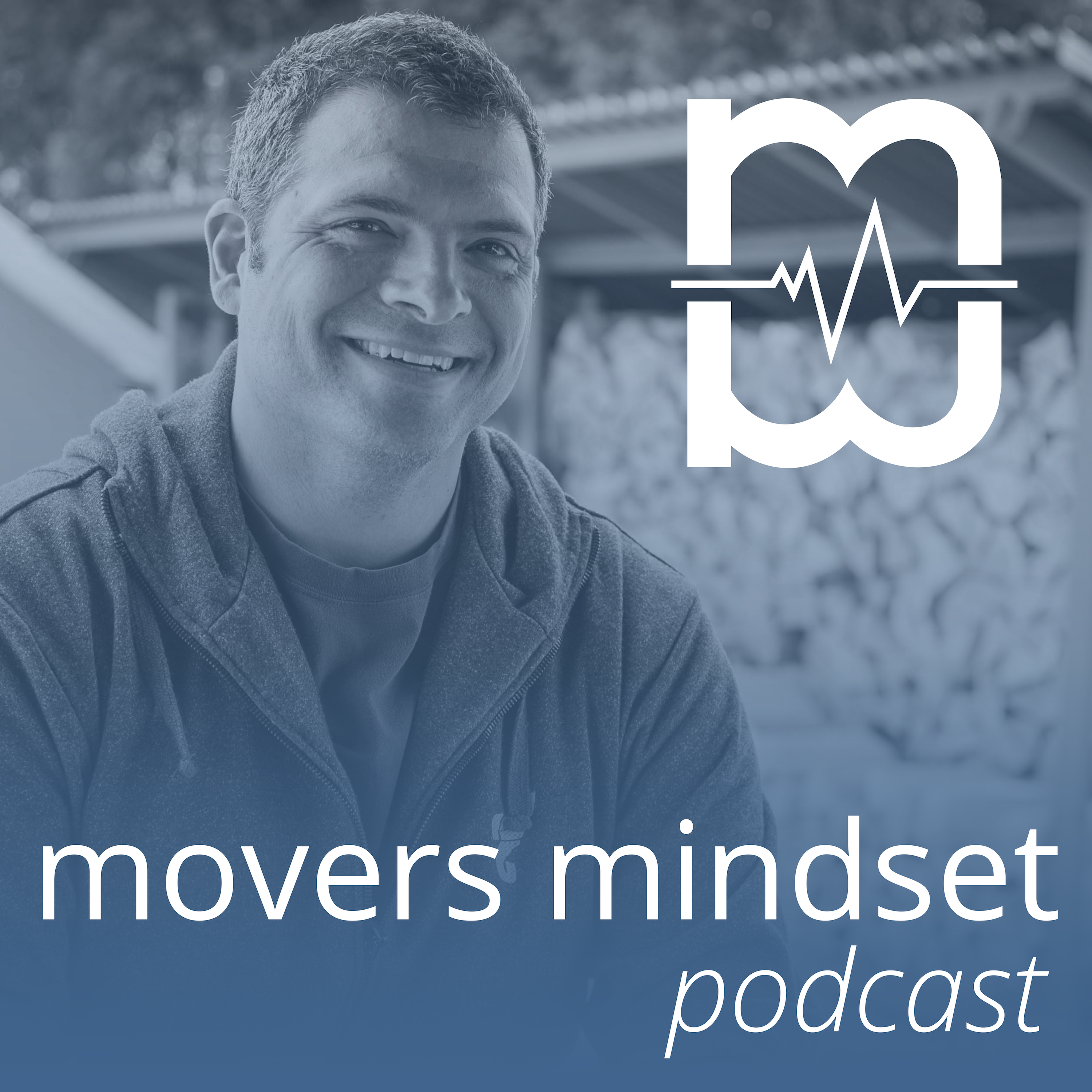We can't find the internet
Attempting to reconnect
Something went wrong!
Attempting to reconnect

Access AI content by logging in
Andrew Suseno joins Craig to describe how Moving Rasa transforms trauma into collective healing and empowerment through movement, redefining personal boundaries and identity in profound ways.
Andrew Suseno describes the transformative work of Moving Rasa, a continuation from his earlier focus on Parcon Resilience. Andrew and Craig begin with an introduction to two upcoming retreats designed for Asian American Pacific Islanders and BIPOC communities, emphasizing rest, recuperation, and abolition. These retreats aim to support community organizers by reconnecting them with their bodies and helping restore their life rhythms. The events serve as a platform for individuals from marginalized communities to engage in healing practices, fostering a sense of empowerment and collective well-being.
"Rasa means taste in Indonesian, and it also means discernment of feeling with the heart. It isn't just about what our relationship to food is, but it's what our relationship to anything is— whether it's a picture on the wall, a book that we read, a friend, a value that we might have. And just like we might have a sensory understanding of what something tastes like, we have a sensory understanding of our rasa for anything. And that sensory understanding can be moved into and explored and improvised with and moved with others."
~ Andrew Suseno, 5:25
Andrew elucidates the concept of "Rasa," explaining its multifaceted meanings that encompass taste, discernment of feeling with the heart, and essence in various languages, including Indonesian and Sanskrit. This concept underpins the ethos of Moving Rasa, encouraging participants to explore and connect with their essence through movement improvisation.
The conversation further explores the transformative potential of acknowledging and moving through trauma in community settings. Through the lens of Moving Rasa, Andrew shares insights into creating spaces where individuals can engage in self-discovery and collective healing. The dialogue highlights the importance of patience, love, and community in navigating personal and collective liberation journeys, offering a nuanced perspective on time, self-love, and the construction of communal identities.
"What if we started with ourselves? What if we forgave ourselves for punishing ourselves? What does that open up in our relationships with others, with ourselves, with objects, with ideas? What movements are possible there? …both literally—physically—movements, but also what movements are possible in the world? …what you can create?
~ Andrew Suseno, 31:01
Takeaways
The concept of Rasa — a multifaceted term signifying taste, discernment of feeling, and essence, guiding participants towards connecting with their cultural and personal essence.
Community healing and empowerment — Moving Rasa retreats aimed at Asian American Pacific Islanders and BIPOC, focusing on creating spaces for individuals to restore rhythms and engage with their bodies in a healing manner.
Creating brave spaces — as a method to support trauma recovery and collective healing.
The importance of collective identity — a way of sharing burdens and expanding the definition of identities within community spaces, fostering self-determination and expansive identity construction.
Abolition as a personal and collective journey — introduced as a theme for contemplation and practice, encouraging self-forgiveness and the cessation of self-punishment to unlock new possibilities in relationships and movements.
The role of patience, love, and community — as foundational elements in the practice, with a call to reevaluate our relationship with time, cultivate self-love through community support, and actively engage in co-creating a shared future.
Resources
The specific, upcoming events mentioned in this episode are: Feb 16 — AAPI Emergent Retreat and Feb 23 — BIPOC Emergent Retreat
Moving Rasa Testimonials — Testimonials page, for the several testimonial
